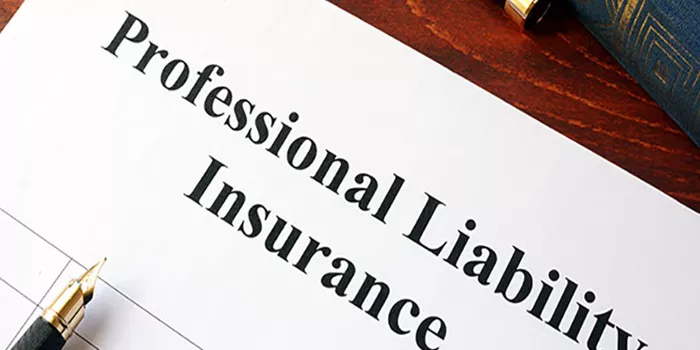When discussing insurance for professionals, two terms frequently arise: professional liability insurance and professional indemnity insurance. Although these terms might sound different, they essentially refer to the same type of coverage, providing financial protection for professionals against claims related to their work. In the United States, professional liability insurance is commonly known as errors and omissions (E&O) insurance, while in other regions, it might be referred to as professional indemnity insurance. Regardless of the terminology, the core purpose remains the same: safeguarding professionals from the financial repercussions of negligence, errors, or omissions in their professional services or advice.
Purpose of Coverage
Both professional liability and professional indemnity insurance are designed to offer a crucial safety net for professionals whose work involves providing services or advice to clients. These insurance policies cover a broad range of scenarios where a client or third party claims to have suffered a financial loss due to the professional’s alleged negligence, mistakes, or failure to perform their duties adequately. The primary goal is to ensure that professionals are not left financially vulnerable to lawsuits or compensation claims, which can be substantial and potentially ruinous without adequate protection.
Coverage Details
Legal Defense Costs
One of the key components of professional liability and indemnity insurance is the coverage for legal defense costs. If a claim is made against a professional, the policy will typically cover the expenses related to defending against the claim, including attorney fees, court costs, and other related expenses. This aspect of coverage is vital, as legal proceedings can be lengthy and costly, even if the professional is ultimately found not liable.
Compensation Claims
In addition to legal defense costs, these insurance policies also cover compensation claims made by clients or third parties. If the professional is found liable for negligence, errors, or omissions that resulted in a financial loss for the client, the policy will cover the compensation awarded to the claimant. This could include reimbursement for lost income, additional costs incurred by the client to rectify the mistake, and other related financial damages.
Additional Coverages
Some professional liability and indemnity insurance policies may also offer additional coverages, such as:
Public relations expenses: Coverage for costs associated with managing the professional’s reputation following a claim.
Disciplinary proceedings: Coverage for costs associated with defending against disciplinary actions taken by professional regulatory bodies.
Loss of documents: Coverage for costs related to the loss or damage of important documents that are critical to the professional’s business operations.
Differences Across Professions
While the fundamental principles of professional liability and indemnity insurance are consistent, the specifics of coverage can vary significantly across different professions. Here are a few examples:
Medical Professionals
For medical professionals, such as doctors and nurses, professional liability insurance (often referred to as medical malpractice insurance) covers claims related to medical errors, misdiagnoses, surgical mistakes, and other healthcare-related issues. Given the high-risk nature of medical practice, the coverage limits for these policies tend to be higher, reflecting the potentially substantial financial awards in malpractice suits.
Legal Professionals
Lawyers and legal professionals require coverage for claims related to errors in legal advice, missed deadlines, and other mistakes that could lead to financial losses for their clients. Legal malpractice insurance, a form of professional liability insurance, ensures that attorneys are protected from the significant financial impact of such claims, allowing them to focus on their practice without the constant fear of litigation.
Consultants and Advisors
Consultants and advisors, whether in business, finance, or IT, also benefit from professional liability insurance. These professionals are often relied upon for their expertise and strategic advice. Errors or omissions in their recommendations can lead to significant financial consequences for their clients. Professional indemnity insurance for consultants typically covers claims related to incorrect advice, project delays, and failure to achieve expected results.
Common Misconceptions
Misconception: Different Names Mean Different Coverage
A common misconception is that professional liability insurance and professional indemnity insurance offer different types of coverage. In reality, they are synonymous and provide the same protection against claims of negligence, errors, or omissions in professional services. The difference in terminology primarily stems from regional preferences, with “professional indemnity” being more common in countries like the UK and Australia, while “professional liability” or “errors and omissions” are used more frequently in the US.
Misconception: Only Certain Professions Need This Insurance
Another misconception is that only certain high-risk professions, like doctors and lawyers, need professional liability or indemnity insurance. In truth, any professional who provides services or advice can benefit from this coverage. This includes a wide range of professions such as architects, engineers, accountants, real estate agents, and even freelance consultants. If there’s a possibility that a client could claim financial loss due to your professional services, having this insurance is essential.
Misconception: General Liability Insurance is Sufficient
Some professionals mistakenly believe that their general liability insurance will cover claims related to their professional services. However, general liability insurance typically covers bodily injury, property damage, and other general risks, but not claims arising from professional errors or omissions. Therefore, it’s crucial for professionals to have separate professional liability or indemnity insurance to cover these specific risks.
Importance of Coverage
Financial Protection
The primary importance of having professional liability or indemnity insurance lies in the financial protection it offers. Legal claims can be incredibly expensive, not only in terms of potential compensation but also the costs associated with legal defense. Without adequate insurance, professionals could face significant financial strain or even bankruptcy.
Maintaining Professional Reputation
In addition to financial protection, having this insurance also helps maintain a professional’s reputation. Being able to handle claims efficiently and cover associated costs demonstrates a commitment to accountability and professionalism. It reassures clients that the professional takes their responsibilities seriously and is prepared to address any issues that may arise.
Compliance with Industry Standards
In many professions, having professional liability or indemnity insurance is not just a matter of prudence but a requirement. Professional regulatory bodies often mandate that their members carry adequate insurance as a condition of their licensure or certification. This ensures that clients are protected and that the profession maintains high standards of practice.
How to Obtain Coverage
Assessing Your Needs
The first step in obtaining professional liability or indemnity insurance is assessing your specific needs. Consider the nature of your professional services, the potential risks involved, and the typical claim sizes in your industry. This will help you determine the appropriate coverage limits and policy features.
Comparing Quotes
Once you have a clear understanding of your needs, the next step is to compare quotes from different insurance providers. Look for insurers with a strong reputation and experience in your specific field. Comparing quotes will help you find the best coverage at a competitive price.
Evaluating Policy Features
When comparing policies, pay close attention to the specific features and exclusions. Ensure that the policy covers all the key risks associated with your profession. Consider factors such as:
- Coverage limits
- Deductibles
- Additional coverages (e.g., public relations expenses, disciplinary proceedings)
- Claims handling process
Seeking Professional Advice
If you’re unsure about the details of the insurance policies or need help understanding the best options for your profession, consider seeking advice from an insurance broker or advisor. They can provide valuable insights and help you navigate the complexities of obtaining the right coverage.
Applying for Coverage
Once you’ve selected a policy, the final step is to apply for coverage. The application process typically involves providing detailed information about your professional practice, including the nature of your services, your qualifications, and any past claims history. The insurer will use this information to assess your risk profile and determine the final terms of your coverage.
Maintaining Your Policy
After obtaining coverage, it’s important to maintain your policy by paying premiums on time and keeping your insurer informed of any significant changes in your professional practice. Regularly reviewing your coverage to ensure it remains adequate as your practice evolves is also crucial.
Conclusion
Professional liability and professional indemnity insurance are essential forms of coverage for any professional providing services or advice. Despite different names, they offer the same protection against claims of negligence, errors, or omissions. Understanding the specifics of these policies, addressing common misconceptions, and knowing how to obtain and maintain the right coverage are critical steps in safeguarding your professional career and financial well-being. Whether you’re a doctor, lawyer, consultant, or any other type of professional, having this insurance is a prudent measure to protect yourself and your practice from potential legal and financial challenges.
FAQs about Professional Liability Insurance
1. Is professional indemnity the same as liability?
No, professional indemnity insurance is not the same as general liability insurance. Professional indemnity insurance covers professionals for claims made against them by clients for mistakes, negligence, or omissions made while providing professional services. It is designed to protect against the financial costs of legal action and compensation claims. On the other hand, general liability insurance covers businesses for claims involving bodily injuries, property damage, and other general liabilities that can arise during business operations.
2. Is professional indemnity the same as general liability?
No, professional indemnity insurance is distinct from general liability insurance. While both types of insurance offer protection, they cover different risks. Professional indemnity insurance is tailored for professionals who provide advice or services to clients, protecting them from claims of negligence or errors in their professional work. General liability insurance, however, covers more broad risks such as physical injuries to third parties or damage to their property that might occur as part of normal business operations.
3. What is the US equivalent of professional indemnity insurance?
In the United States, the equivalent of professional indemnity insurance is commonly known as errors and omissions (E&O) insurance. E&O insurance provides similar coverage, protecting professionals and businesses from claims of negligence, mistakes, or failure to perform their professional duties adequately, which result in financial loss to a client.
4. What is professional indemnity also known as?
Professional indemnity insurance is also known by several other names, depending on the region and industry. In many places, it is referred to as professional liability insurance (PLI) or errors and omissions (E&O) insurance. These terms are often used interchangeably and provide similar coverage, focusing on protecting professionals from claims of negligence, errors, or omissions in the services they provide to clients.
You Might Be Interested In




















